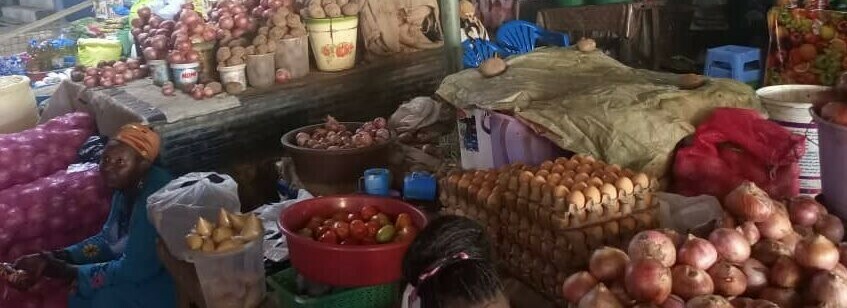Prices of essential commodities have significantly dropped in Bor town, Jonglei State, following the latest strength in the value of the South Sudanese Pound against the US dollar.
Speaking to Radio Tamazuj on Tuesday, Yaach Akuot Manyiel, a trader in the Bor market who doubles as the spokesperson of Jonglei Chamber of Commerce, said that the cost of a 25-kg bag of beans has fallen from 60,000 SSP to 49,000 SSP.
Similarly, a 30-kg of maize flour dropped from 50,000 SSP to 34 000SSP, and a five-litre jerrycan of cooking oil dropped from 17,000 SSP to 15,500 SSP.
“Those are the current prices of commodities from the Marol market, and we hope the prices will keep decreasing. Also, as the chamber of commerce, we monitor the market and ask the traders to adjust the prices when the dollar exchange rate reduces,” Yaach said.
Yaach said the price adjustments directly respond to the shifting exchange rates, as traders aim to align their prices with the current economic trends.
Peter Ajak Ayom, a Bor resident, said, “There are some essential commodities that are supposed not to go higher because the citizens would not be able to buy them. For example, a kilo of meat is 7,000 SSP, and that is very hard for a normal person who doesn’t have such an amount of money to buy. Even if the dollar rate decreases, the prices stop there and remain higher. I have experienced it here now that there are no reductions in prices. It’s a concern, the government needs to do something,” Ajak said.
His sentiments are echoed by another resident, John Akuok Nyok, who called upon the government to implement stringent market monitoring and regulation strategies.
Nyok highlighted the need for oversights to prevent traders from exploiting the market trends and causing undue hardship to the citizens.
Amidst the economic turmoil, Nyok suggests the creation of a digital dashboard to keep the public informed about the daily prices of essential commodities.
“There should be a dashboard for price tracking, as I experienced from other countries from the East African region. The dashboard tracks the prices on a daily basis right away from the border entry points,” Nyok said.




